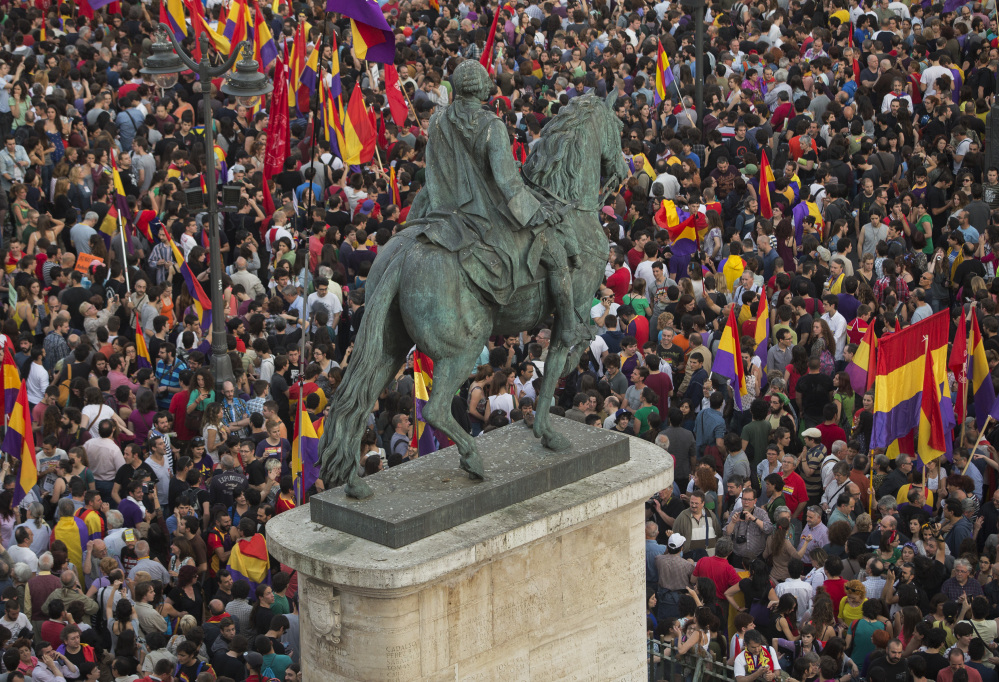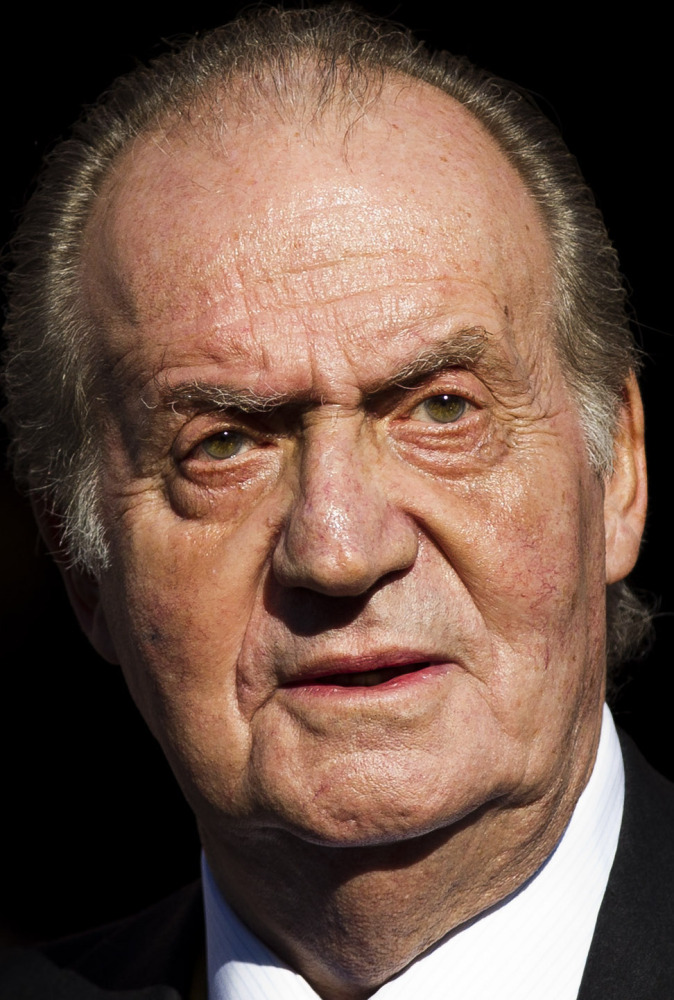MADRID — King Juan Carlos, who led Spain’s transition from dictatorship to democracy but faced damaging scandals amid the nation’s financial meltdown, announced Monday he will abdicate in favor of his more popular son so that fresh royal blood can rally the nation.
While the monarchy is largely symbolic, Juan Carlos’ surprise decision may hold implications for the burning issue of Catalonia, which is to hold a secession referendum this fall.
A constitutional revision is required to ensure Crown Prince Felipe’s first-born daughter will succeed him, and there was speculation other changes might be made to dull secessionist fervor in the wealthy northeastern region.
Juan Carlos said 46-year-old Felipe is ready to be king and will “open a new era of hope.” The son already has greater command over the hearts of his people: Felipe’s 70 percent approval in a recent El Mundo newspaper poll dwarfs Juan Carlos’ 41 percent.
Juan Carlos didn’t mention the scandals or Catalonia, or specify what issues his son must prioritize as the next head of state. He stressed only that Felipe will need to “undertake the transformations and reforms demanded by today’s circumstances and to address the challenges of tomorrow with renewed intensity and dedication.”
In his nationwide address, the king said he started making plans to give up the throne after he turned 76 in January.
Since then, Spain has embarked on a sluggish but steady economic recovery. Its biggest problems are a 25 percent unemployment rate and Catalonia’s drive to hold a secession vote in November – labeled illegal by the central government in Madrid. Spain is expected to change its constitution to ensure Felipe’s daughter, Leonor, can succeed him, should Felipe’s wife get pregnant again and give birth to a boy, who would become monarch under the current constitution.
Far-left parties urged a national referendum to abolish Spain’s monarchy and called nationwide protests Monday night. Tens of thousands took to the streets in Madrid, Barcelona and other cities demanding a vote on whether to rid Spain of its royal family.
King Juan Carlos came to power in 1975, two days after the death of longtime dictator Francisco Franco. He endeared himself to many by putting down an attempted military coup in 1981 when he was a young and largely untested head of state.
As Spain’s new democracy matured and the country transformed itself from an economic laggard into Europe’s fourth-largest economy, the king played a largely figurehead role.
He was a stabilizing force in a nation with restive, independence-minded regions like Catalonia and the northern Basque region.
Copy the Story LinkSend questions/comments to the editors.




Success. Please wait for the page to reload. If the page does not reload within 5 seconds, please refresh the page.
Enter your email and password to access comments.
Hi, to comment on stories you must . This profile is in addition to your subscription and website login.
Already have a commenting profile? .
Invalid username/password.
Please check your email to confirm and complete your registration.
Only subscribers are eligible to post comments. Please subscribe or login first for digital access. Here’s why.
Use the form below to reset your password. When you've submitted your account email, we will send an email with a reset code.